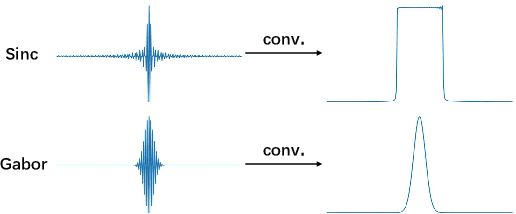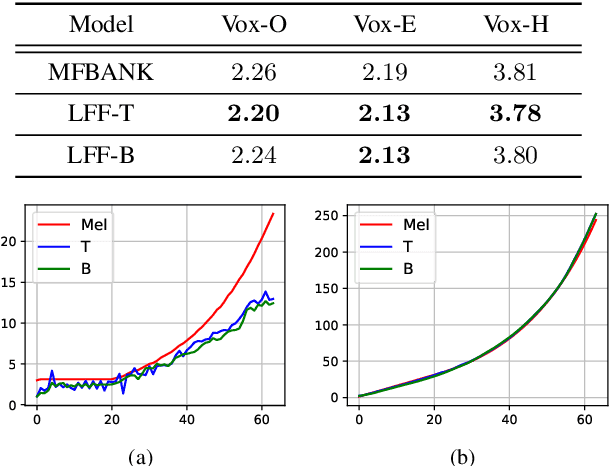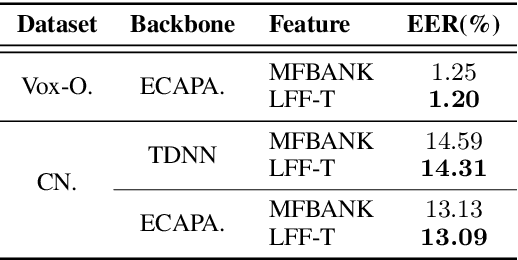Learnable Frequency Filters for Speech Feature Extraction in Speaker Verification
Paper and Code
Jun 15, 2022



Mel-scale spectrum features are used in various recognition and classification tasks on speech signals. There is no reason to expect that these features are optimal for all different tasks, including speaker verification (SV). This paper describes a learnable front-end feature extraction model. The model comprises a group of filters to transform the Fourier spectrum. Model parameters that define these filters are trained end-to-end and optimized specifically for the task of speaker verification. Compared to the standard Mel-scale filter-bank, the filters' bandwidths and center frequencies are adjustable. Experimental results show that applying the learnable acoustic front-end improves speaker verification performance over conventional Mel-scale spectrum features. Analysis on the learned filter parameters suggests that narrow-band information benefits the SV system performance. The proposed model achieves a good balance between performance and computation cost. In resource-constrained computation settings, the model significantly outperforms CNN-based learnable front-ends. The generalization ability of the proposed model is also demonstrated on different embedding extraction models and datasets.
 Add to Chrome
Add to Chrome Add to Firefox
Add to Firefox Add to Edge
Add to Edge